Cargando...
Recursos educativos
-
Nivel educativo
-
Competencias
-
Tipología
-
Idioma
-
Tipo de medio
-
Tipo de actividad
-
Destinatarios
-
Tipo de audiencia
-
Creador
-
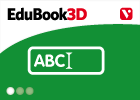
Complete. Fertilisation
EduBook Organización
- 2426 visitas
Complete the text about fertilisation with the correct words: internal reptiles ovum Internal mammals female external Fertilisation of the by the sperm takes place in one of two ways: inside the body of…
-
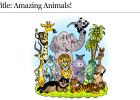
Webquest: Amazing animals
Tiching explorer Organización
- 3018 visitas
This webquest is designed to help us classify animals (mammals, fish, birds, amphibians, and reptiles) and build their schema. We do an online research to find information on each animal classification…
-
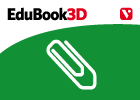
Birds and their food
EduBook Organización
- 2223 visitas
The majority of birds eat seeds and the nectar in flowers. Others eat fish or small mammals. The shape of a bird's beak is adapted to the type of food that it eats. Do you know the names of these…
-
Final self-evaluation 10 - Animals
EduBook Organización
- 2011 visitas
Decide if each characteristic relates to mammals or not: They feed their young with milk. ➝ Their eggs have a hard shell. ➝ They have six limbs. ➝ Their skin is covered in hair or fur. ➝ They…
-
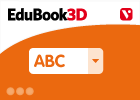
Final self-evaluation 11.06 - The Animal Kingdom (II). Vertebrates
EduBook Organización
- 1925 visitas
Are the following sentences about Homo sapiens true or false? They belong to the hominid family. They are carnivores. Their spinal column is horizontal. The embryo develops in the mother's uterus.…
-
Before you start - The Animal Kingdom (II). Vertebrates
EduBook Organización
- 1893 visitas
Didactic objectives To know the general morphological characteristics of vertebrates and the groups included. Compare, differentiate and describe various specimens of fish, amphibians, reptiles,birds…
-
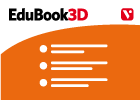
The Animal Kingdom (II). Vertebrates
EduBook Organización
- 15192 visitas
There are around 50000 species of vertebrates, classified into five main groups: fish, amphibians, reptiles, birds and mammals. Fish are the most primitive group and they have the highest number of…
-
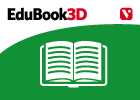
-
End-of-unit activities - The Animal Kingdom (II). Vertebrates
EduBook Organización
- 3904 visitas
There are around 50000 species of vertebrates, classified into five main groups: fish, amphibians, reptiles, birds and mammals. Fish are the most primitive group and they have the highest number of…
-
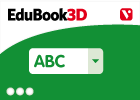
True/false. Characteristics of vertebrates
EduBook Organización
- 3813 visitas
Decide if the following sentences are true or false: Vertebrates are the largest animal group on Earth. ➝ Almost all vertebrates have limbs. ➝ Limbs are called wings when they are used for flying.…
Te estamos redirigiendo a la ficha del libro...













